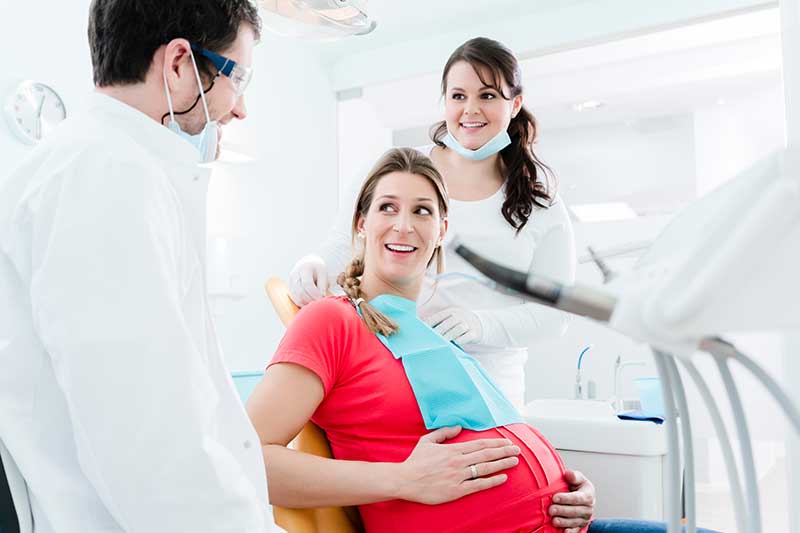Did you know that pregnant women are more at risk of periodontal disease as compared to others? Here are some Oral Hygiene Tips for Pregnant Women.
The reason is that during pregnancy, there is an increased level of progesterone, which encourages the production of bacteria way more than usual. This ultimately leads to more chances of developing gingivitis. The probability of developing gingivitis is more in between the second and eighth months of pregnancy. If you are pregnant, you should consult your dentist shortly to guide you regarding the dental cleaning required during pregnancy to combat the chances of developing oral diseases.
Besides, a balanced diet can also help you prevent oral diseases and ensure health for you and your baby. A baby starts developing teeth between the third and sixth months of pregnancy, so you should make sure that you are consuming sufficient calcium, vitamins, proteins, and phosphorus.
According to the American Academy of Pediatric Dentistry, maintaining oral health is vital, especially during the early months of pregnancy. The negligence in oral care during pregnancy can be a real threat. It can even lead to premature birth and can be life-threatening for the mother as well as the baby.
Here are some guidelines to follow to combat the growing concerns surrounding oral health during pregnancy:
Removal of Bacterial Plaque:
Pregnant women should visit their dentist quite often for the removal of bacterial plaque in their mouths. The well-known dentists in Los Angeles strictly recommend pregnant women to get their bacterial plaque removed during pregnancy since it leads to many serious problems, including the preterm deliveries as well as low-weight baby births. Apart from visiting your dentist regularly for cleaning, you should also make sure that you brush your teeth after every meal and floss them at least once in a day.
Use Fluoride Toothpaste
The American Dental Association (ADA) strictly recommends using toothpaste with fluoride. And for pregnant women, it is vital to use fluoride toothpaste since it reduces oral bacteria to a great extent. Besides, the AAP recommends pregnant women to use an alcohol-free fluoride rinse to minimize the volume of plaque in the mouth.
Use of Separate Utensils
Since the expectant mothers are more exposed to bacterial diseases, they are strictly advised by the doctors not to share food and utensils with others. This not only prevents the transmission of germs but also helps to combat tooth decay. If you are pregnant, you should make use of separate utensils and should consume clean and unshared food.
Use of Xylitol Gum
Chewing xylitol gum at least thrice a day can help pregnant women to decrease tooth decay significantly. The latest research proves that the use of xylitol gum prevents the growth of Streptococcus Mutans bacteria, which is a significant contributor to tooth decay. A recent study conducted by the NYU Langone Medical Center also proves the fact that xylitol consumption prevents cavities and ensures good oral health.
Treatment of Existing Tooth Decay
If you are a pregnant woman and already have tooth decay, you should get it treated as soon as possible. According to medical experts, the treatment of tooth decay is entirely safe during pregnancy. The restoration of decayed teeth will certainly play a positive role in a healthy pregnancy.

